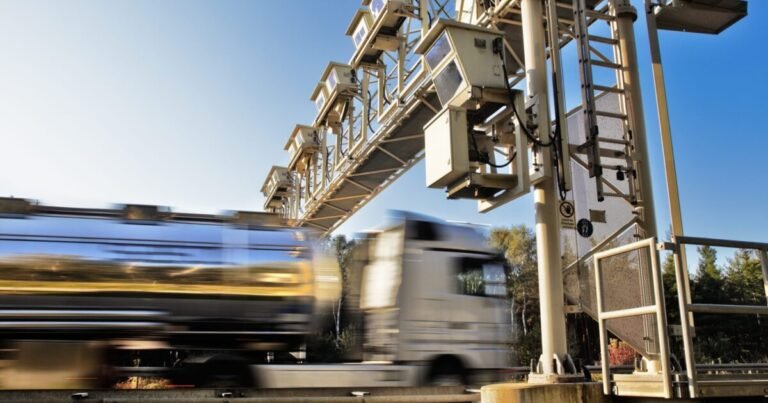EU member states have until 2024 to implement a new road charging system that gives big incentives to zero-emission trucks after MEPs voted to adopt the new legislation today. The Department for Transport and Environment (T&E) has hailed the update Eurovision law It is a turning point in green trucking that will benefit the climate, air quality and transport companies, but it called on member states to start working on its implementation immediately.
By early 2024, transport companies operating zero-emission trucks – powered by electric or hydrogen batteries – must be granted discounts of at least 50% on distance-based road charges. Member states can choose to impose a CO2 surcharge on fossil fuel trucks instead, or implement both measures. With road charges costing transport companies up to €25,000 per truck per year, switching to zero-emission vehicles would significantly reduce their overheads.
James Nix, Director of Shipping Policy at T&E, said: “This is a turning point for green trucking. Fossil fuel trucks will eventually have to pay more if they emit more emissions, and carriers who switch to zero-emission vehicles will cut their costs. But time is running out for national governments to implement a cleaner, fairer system in a timely manner. Europe cannot afford to wait any longer to address this major source of emissions.”
The new law also requires countries to impose a charge on air-polluting trucks from 2026. Today, only four countries impose a charge on air-polluting trucks, and the Transport and Environment Agency said making the charge mandatory was a major step towards recovering the full costs of trucks’ impact on human health and the environment. Small trucks and minibuses would also be charged based on their environmental performance from 2026.
From 2024, new time-based road charges for trucks, which are less fair than distance-based tolls, will be restricted to limited circumstances. If time-based charges remain in place on major highways after April 2024, they will have to be adjusted according to the truck’s CO2 emissions.
Countries that have toll roads under concession contracts can exempt these tolls from charging for carbon dioxide emissions and air pollution, but only until those contracts are renewed or significantly modified.
Trucks are responsible for 23% of EU climate emissions from road transport (1) and, according to data from Copenhagen, Paris and London (2), they account for more than 20% of road vehicle emissions of toxic nitrogen oxides.
Notes to editors:
(1) United Nations Framework Convention on Climate Change (2019). Greenhouse gas data from the United Nations Framework Convention on Climate Change.
https://unfccc.int/process-and-meetings/transparency-and-reporting/greenhouse-gas-data/ghg-data-unfccc/ghg-data-from-unfccc
(2) National Energy and Power Centre, Kildebidrag til sundhedsskadelig airforurening in Copenhagen (2013) https://www.dmu.dk/Pub/SR57.pdf
Greater London Authority, Emissions Data (2016) https://data.london.gov.uk/dataset/london-atmospheric-emissions-inventory–laei–2016
AirParif (2020) Emissions of atmospheric pollutants and gases from fire https://www.airparif.asso.fr/sites/default/files/documents/2020-08/inventaire_emissions_idf_2017_20200724.pdf





